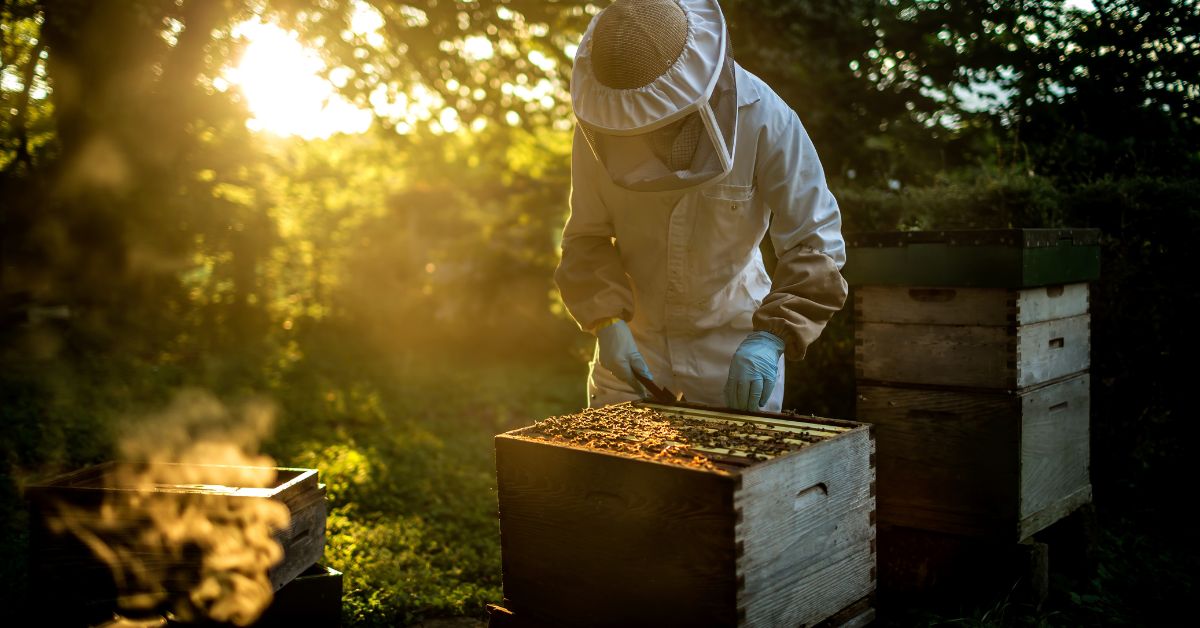
Beekeeping isn’t just a rural activity anymore. Over the past decade, urban and suburban beekeeping has seen remarkable growth in popularity. From backyard beehives out in the country to rooftop apiaries on urban buildings, this age-old practice is experiencing a renaissance.
Why the sudden surge in interest? The allure lies in its dual benefits—sustainability and profitability. Beekeeping can provide you with fresh, organic honey while also contributing to the environment by supporting the pollination of local plants and crops. For many, the idea of turning this passion into a business is both exciting and empowering. If you’ve been captivated by the thought of starting your own beekeeping business, you’re in the right place. This guide will walk you through some smart tips to help transform your interest in beekeeping into a thriving venture.
Essential Equipment and Tools for Beginner Beekeepers
Investing in high-quality equipment from the very beginning is essential. A beekeeping suit with gloves and a veil is non-negotiable, as you need to protect yourself while working with bees. Smokers, which help calm your bees during inspections, are another critical tool. You’ll also want sturdy hive tools and soft bee brushes to work efficiently and keep your bees safe as you perform inspections and harvest honey.
Choosing the Right Hive Location
Another crucial tip for starting your own beekeeping business is to set up your apiary in the right location. The placement of your hives can make or break your beekeeping business. Whether you’re working in a small backyard or a dedicated field, your hives need to be in an area that supports the health and activity of your bees.
Honey bees thrive in sunny locations, so choose a spot with ample sunlight. Face your hives east to help warm the colony in the morning and encourage bee activity early in the day. At the same time, make sure there’s shade coverage in the afternoon to prevent lethargic bees and an overheated hive.
Your location should also be away from areas with heavy foot traffic. While bees are generally not aggressive, minimizing disruptions to their routines is vital. Access to water is another important consideration. Providing a clean, safe water source near the hive will prevent your bees from seeking water in less ideal spots, like neighbor’s pools or birdbaths.
Additionally, be mindful of the surrounding vegetation. Bees need a steady supply of nectar and pollen to thrive, so planting bee-friendly flowers or setting up your hives near gardens or natural woodlands can yield better results.
Sustainable Practices and Environmental Impact of Beekeeping
Beekeeping isn’t just about producing honey; it’s about making a positive impact on the environment. Bees play an essential role in pollinating plants, which helps maintain biodiversity and supports agriculture. By adopting sustainable practices, you can create a business that supports not only your livelihood but also local ecosystems.
Ethical beekeeping techniques, such as avoiding the overharvesting of honey, ensure your bees have enough reserves for their own survival. Preventing the use of harmful pesticides near your hive can also protect bees and the insects they interact with.
Sustainable beekeeping also allows you to connect with a customer base that values environmentally conscious businesses. Educating consumers about your practices can further build loyalty and differentiate your product from competitors.




